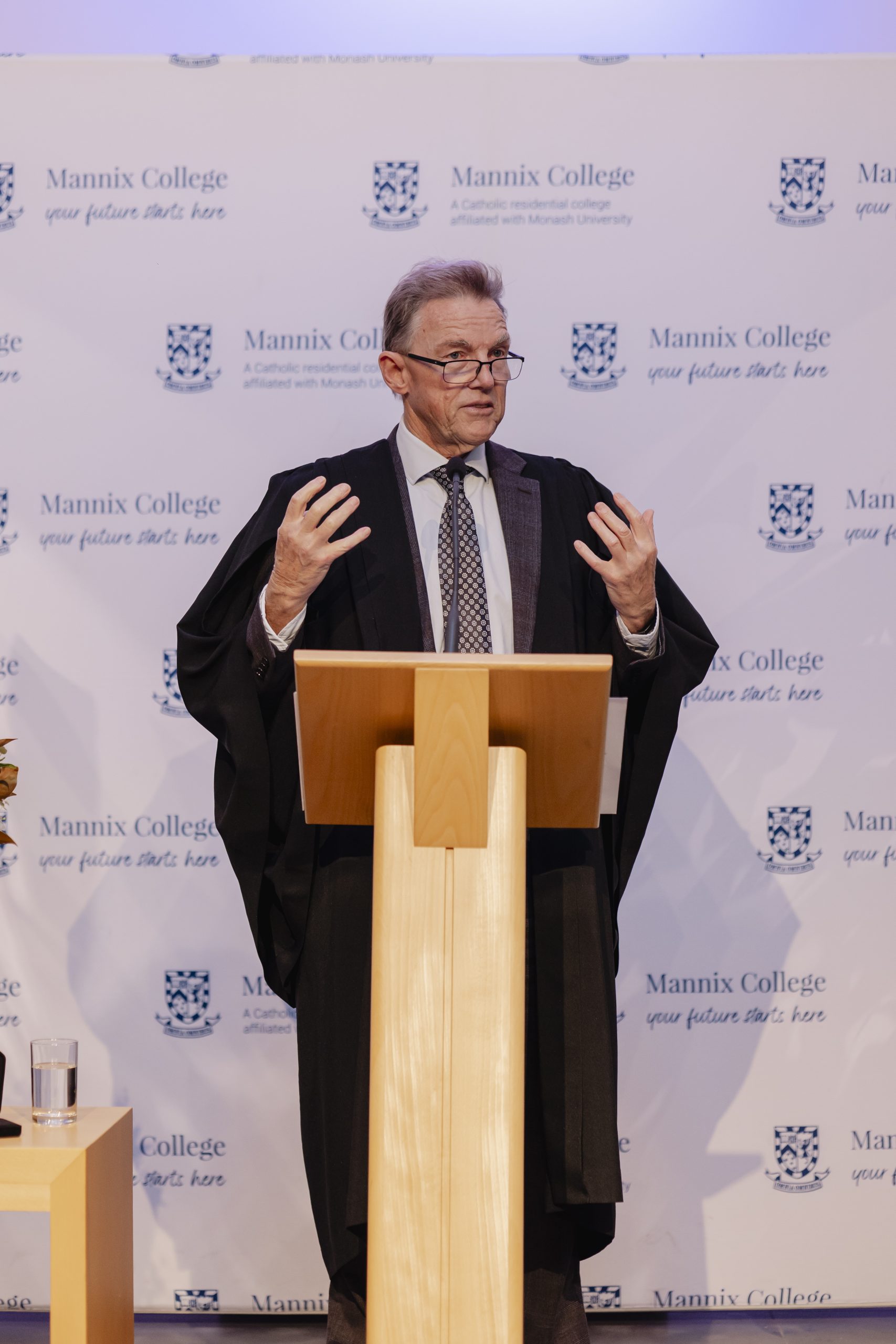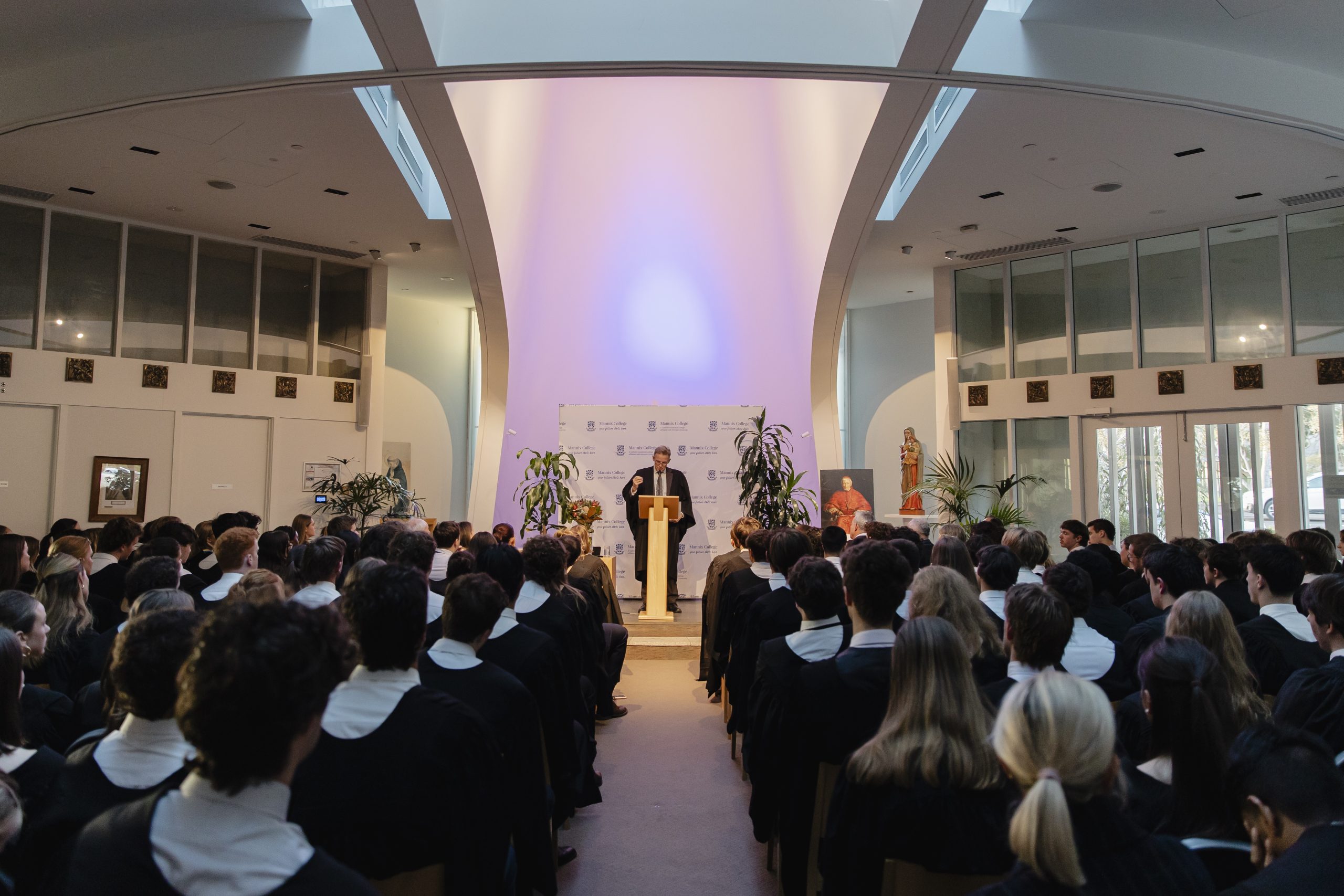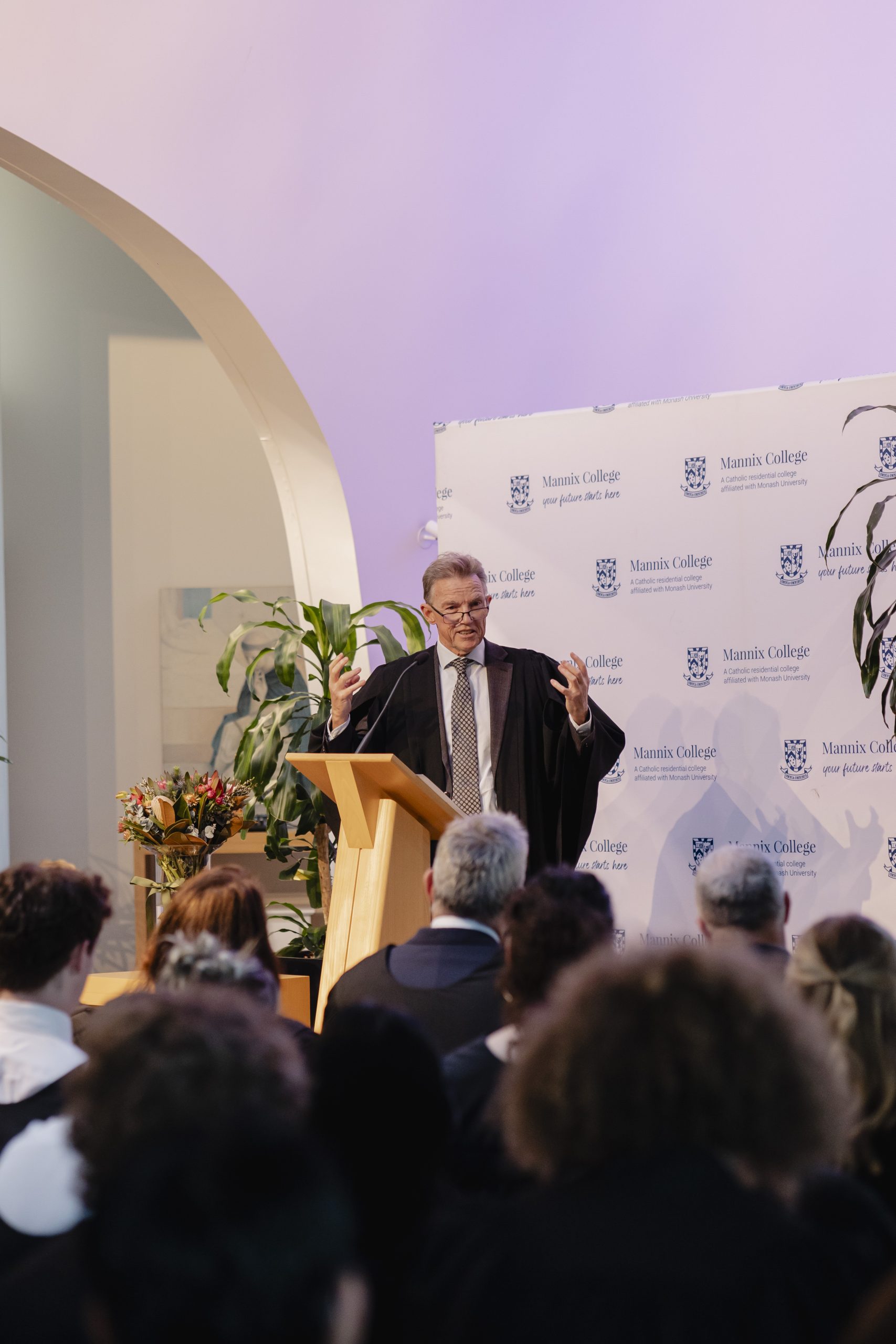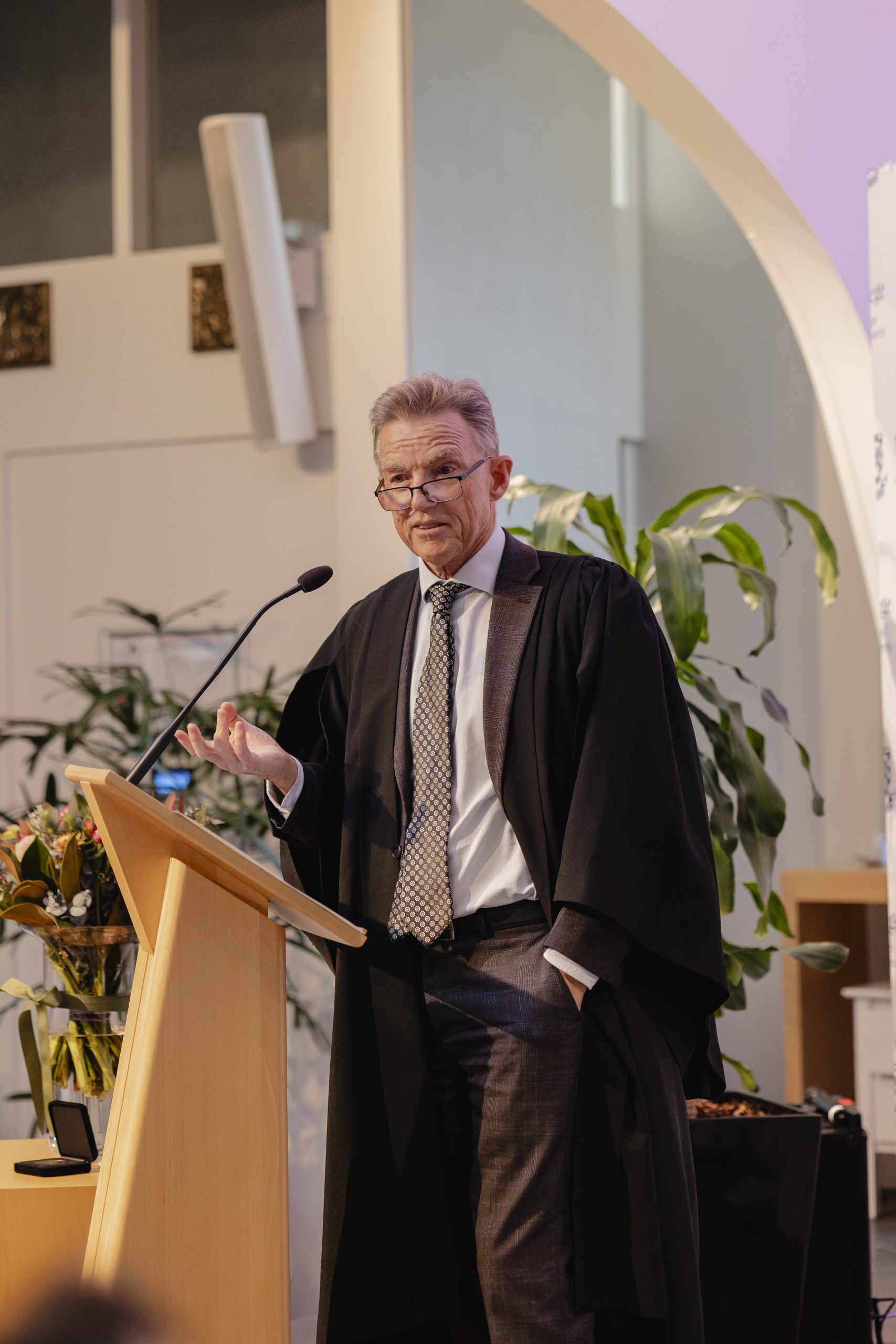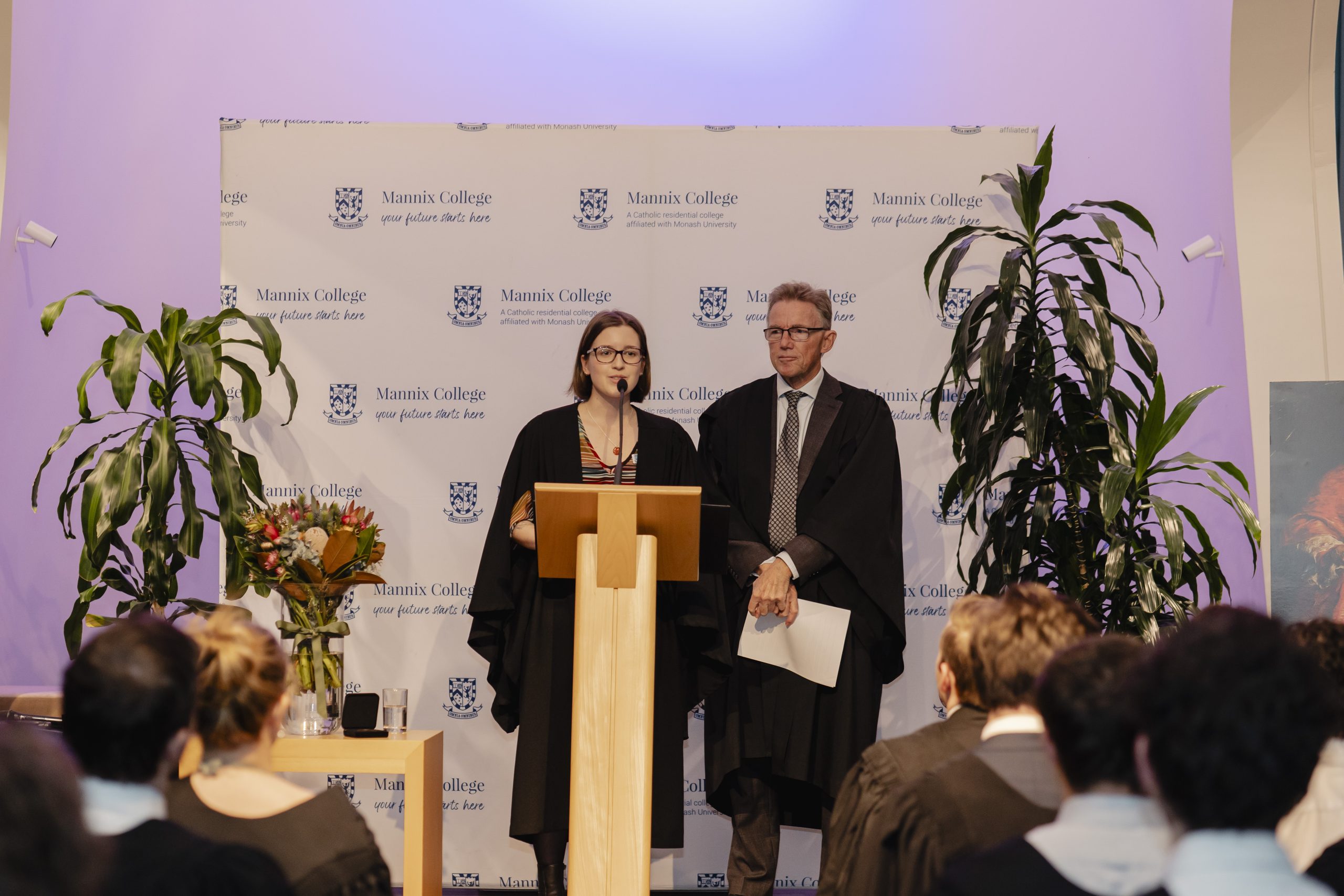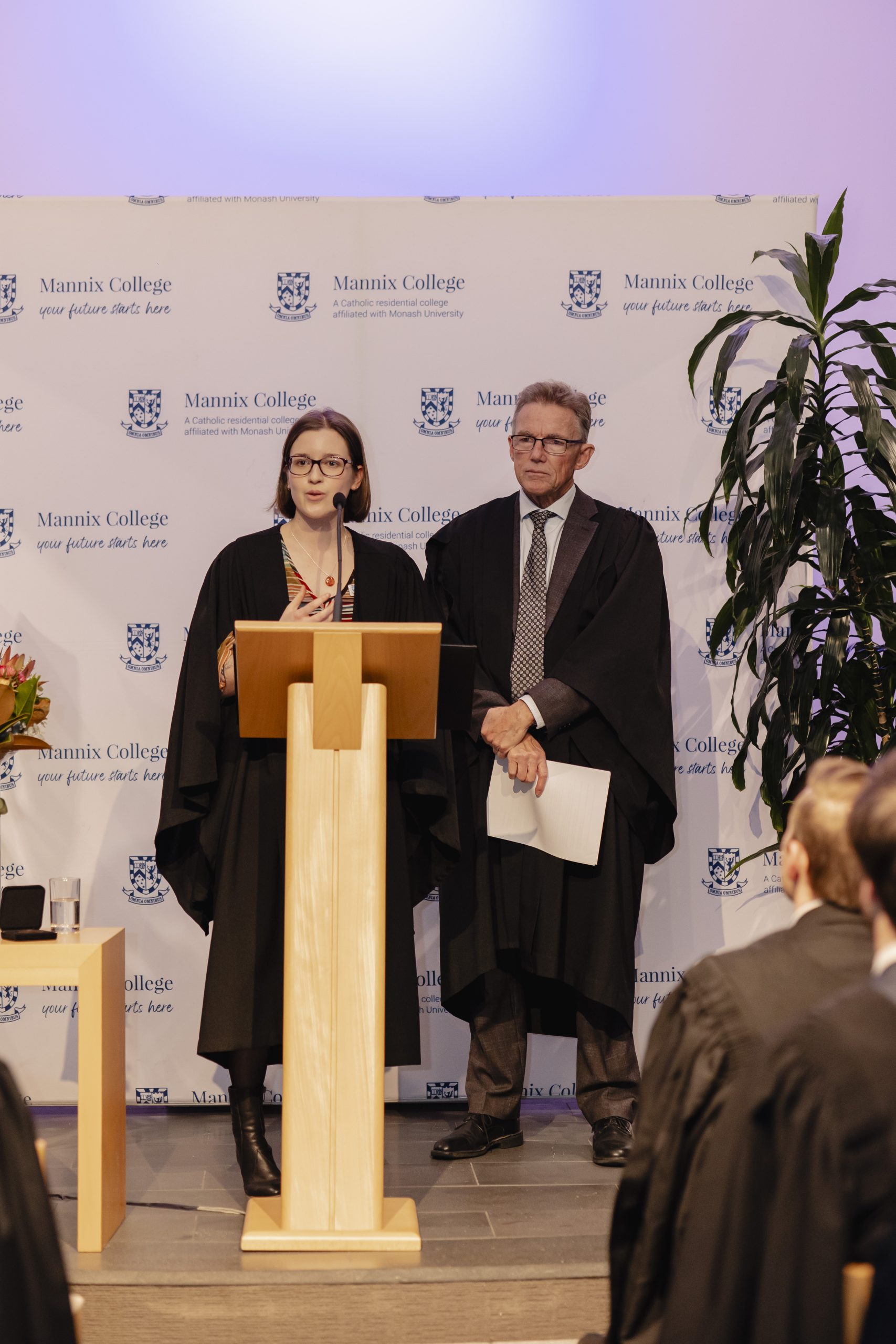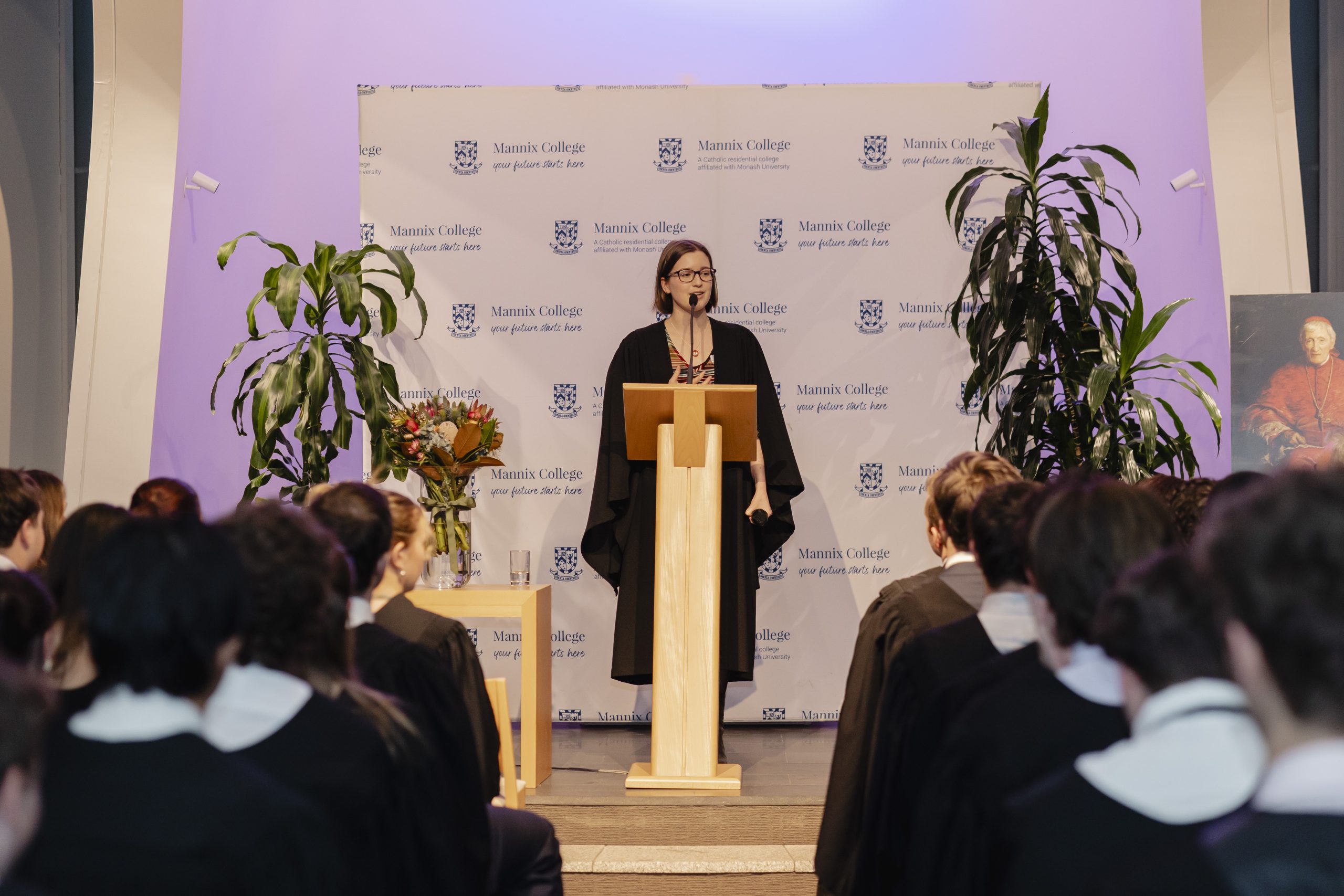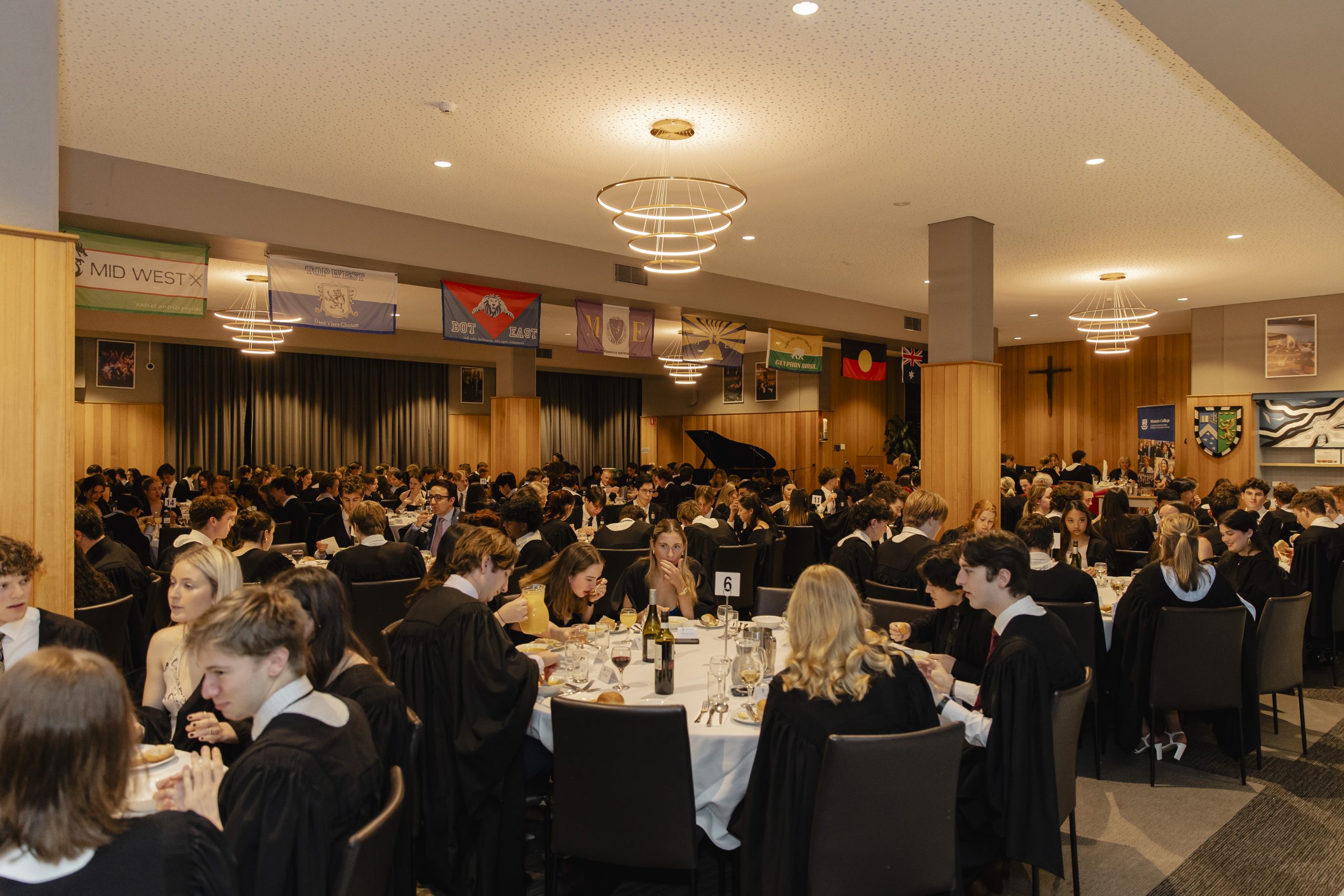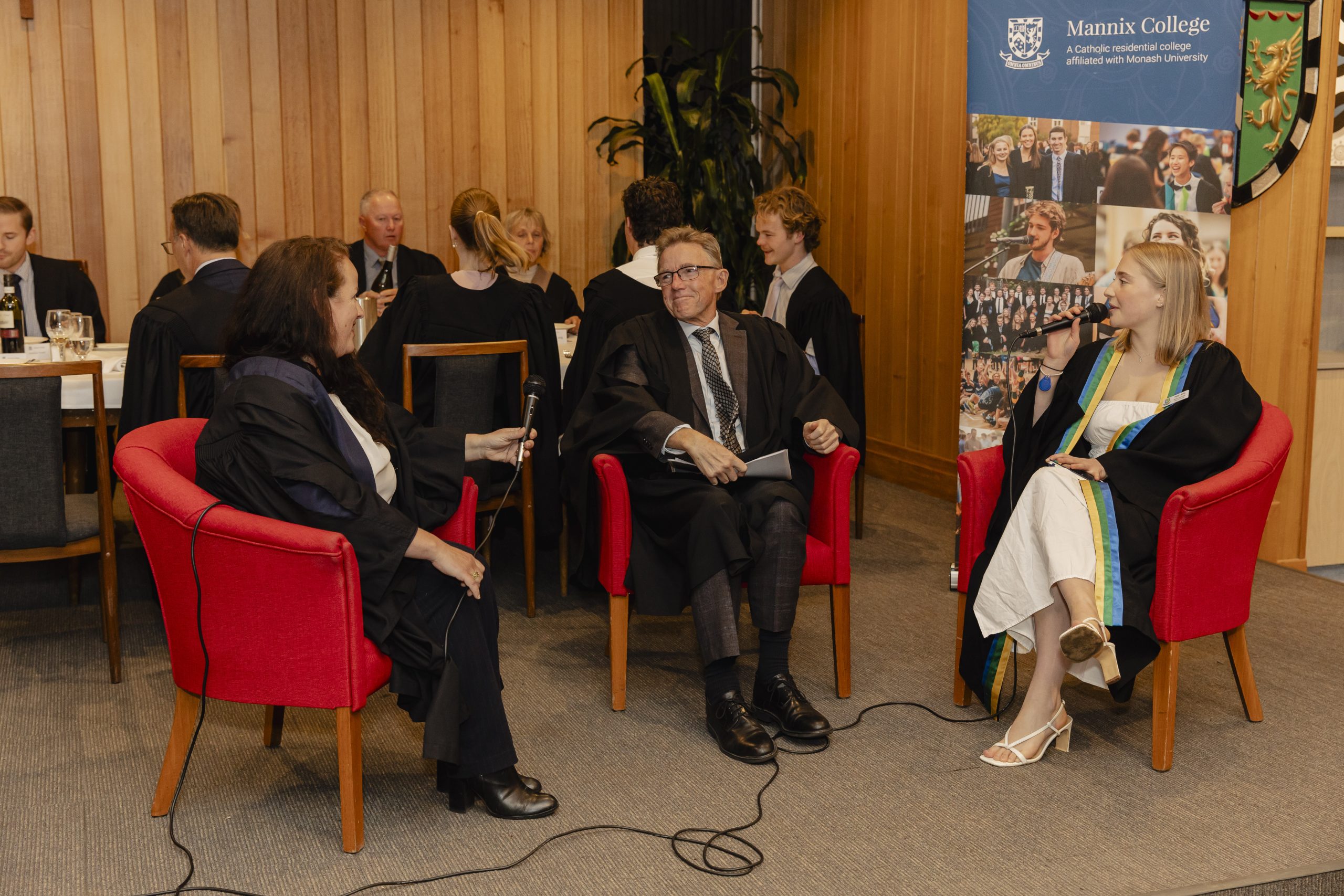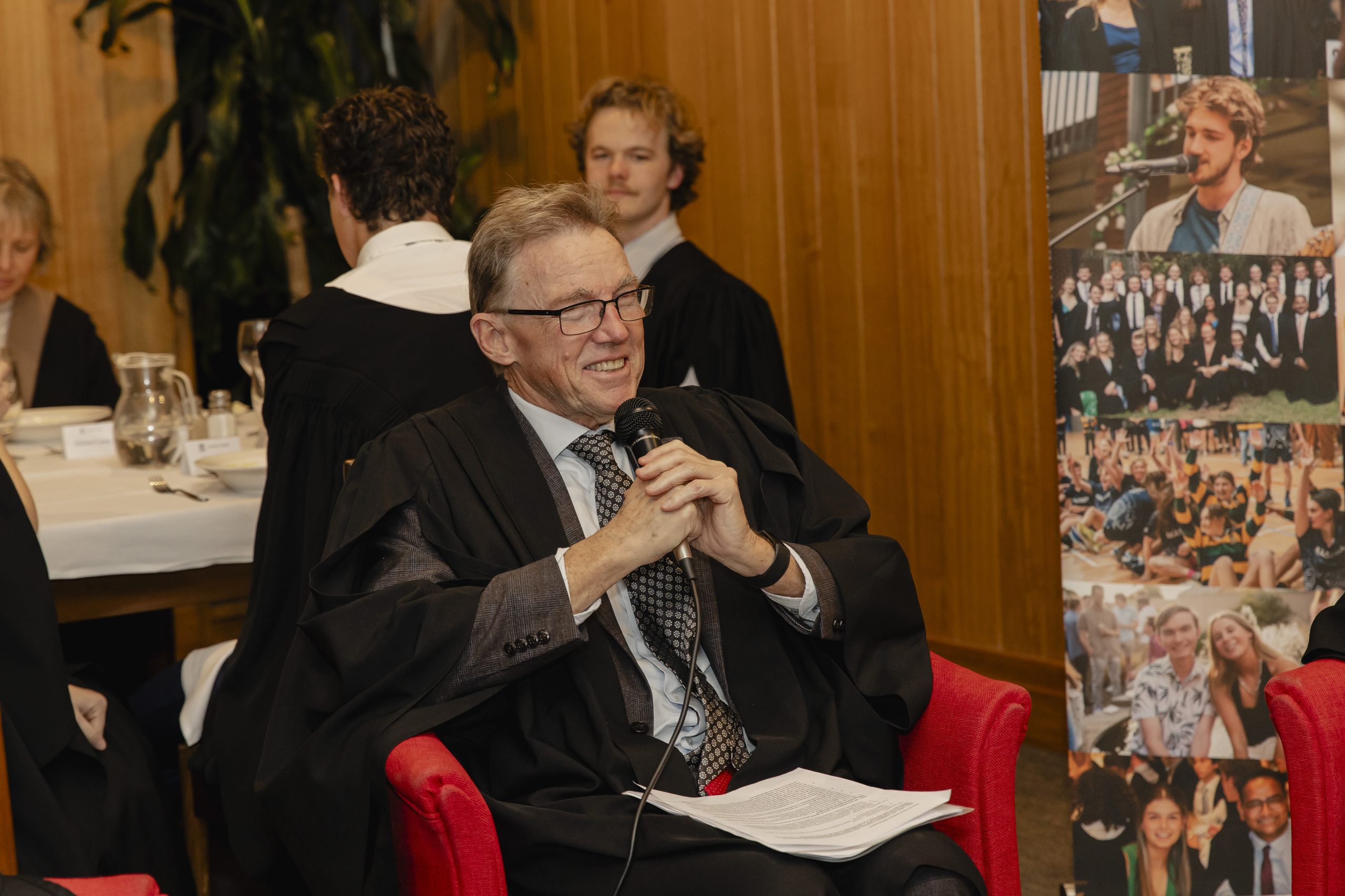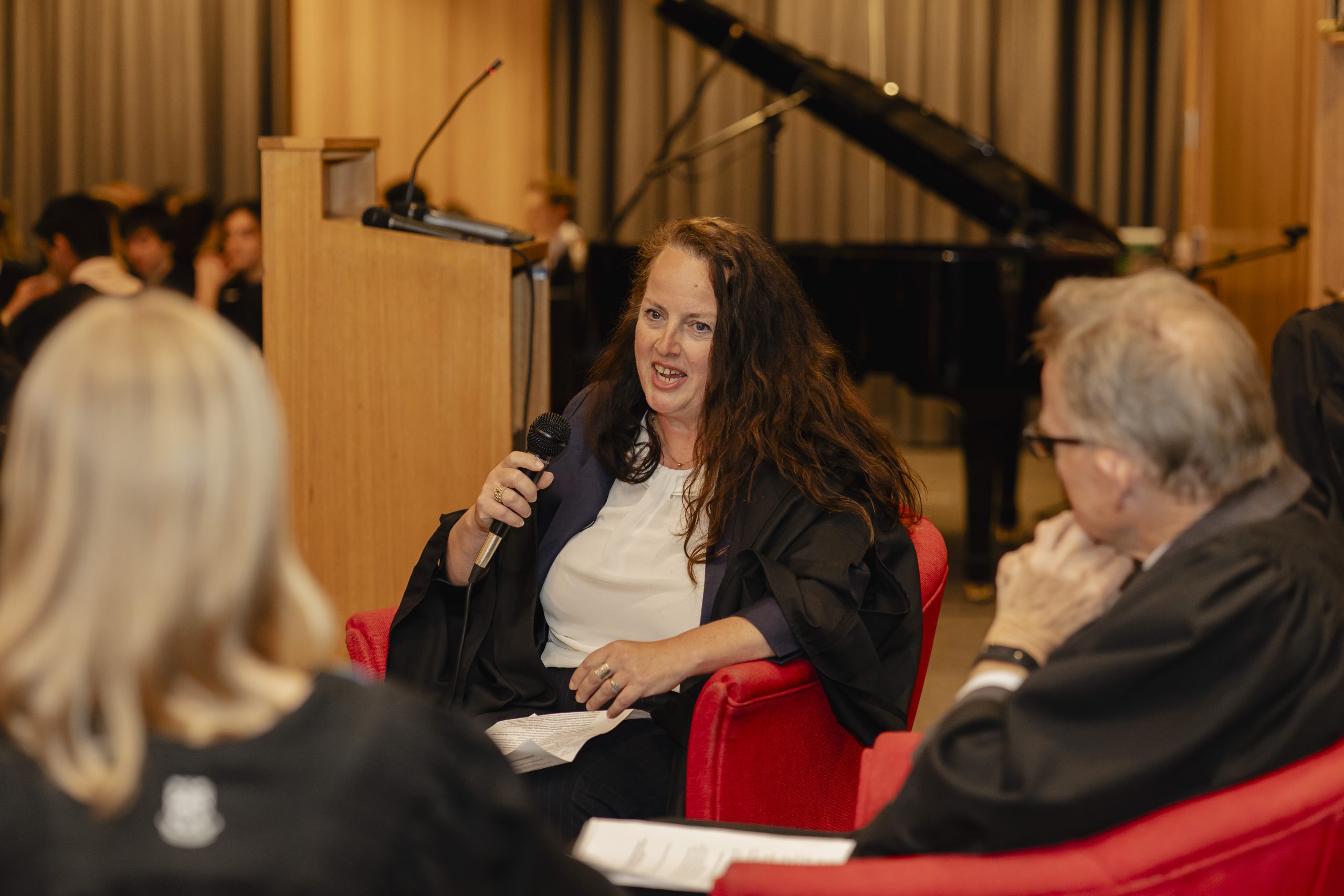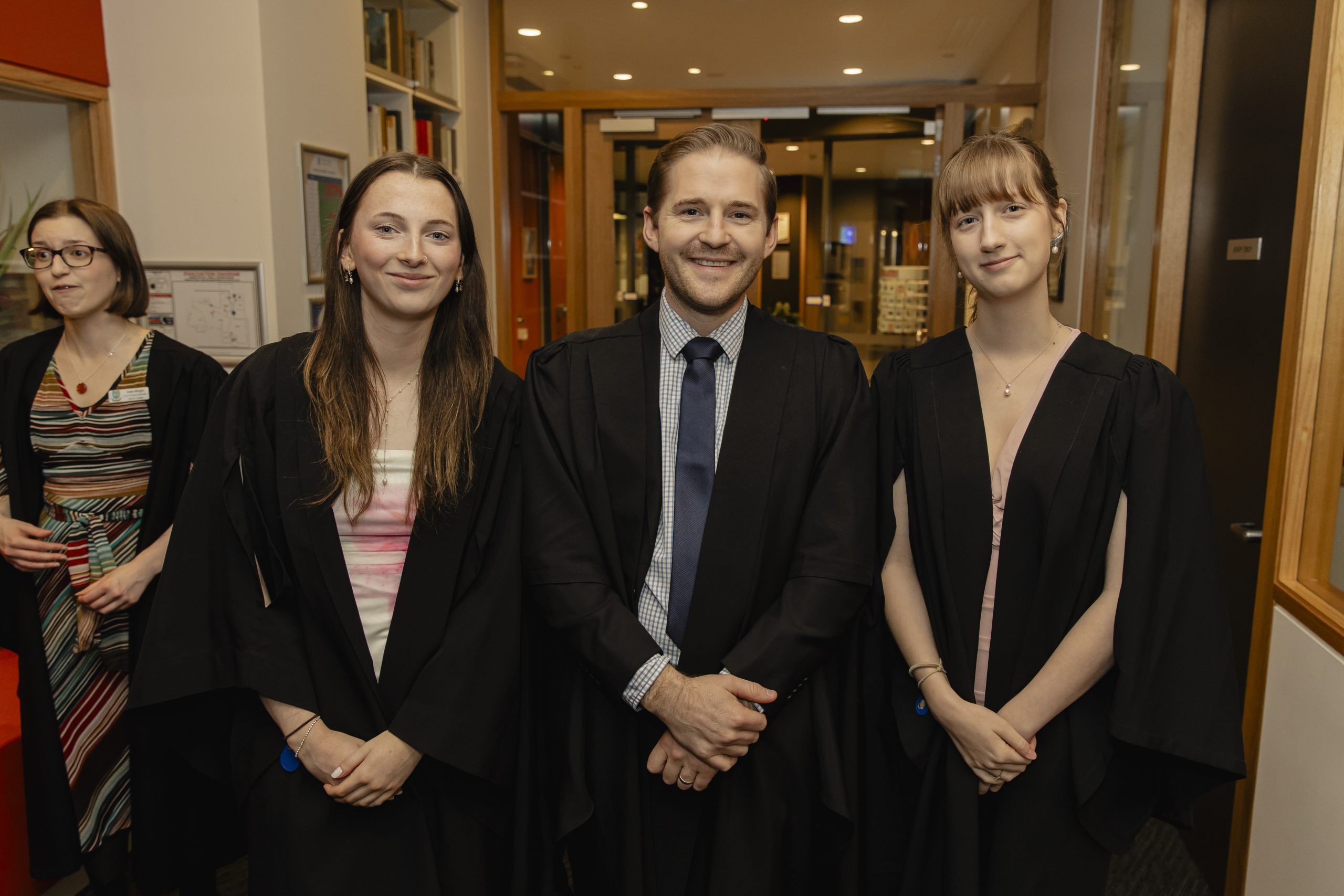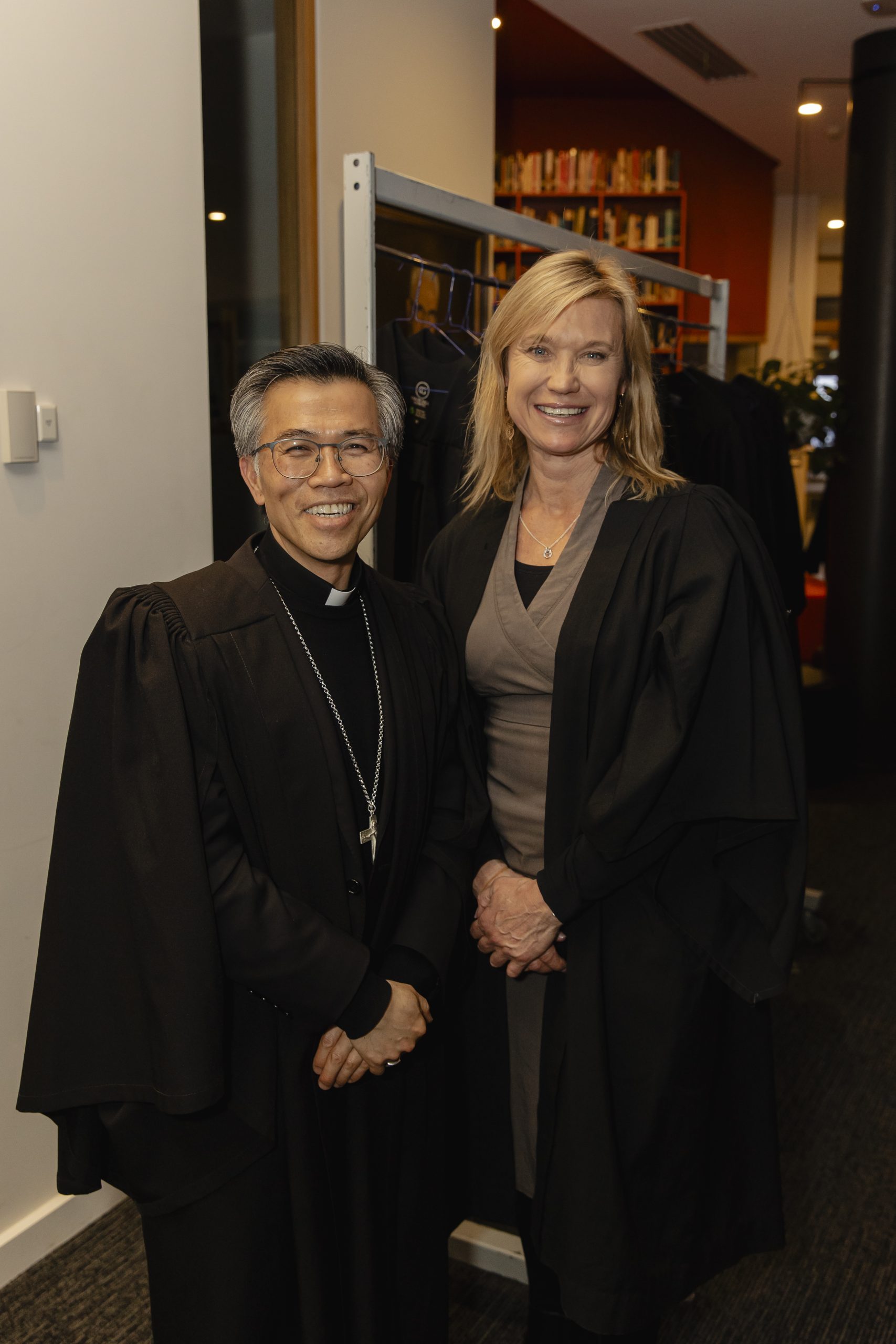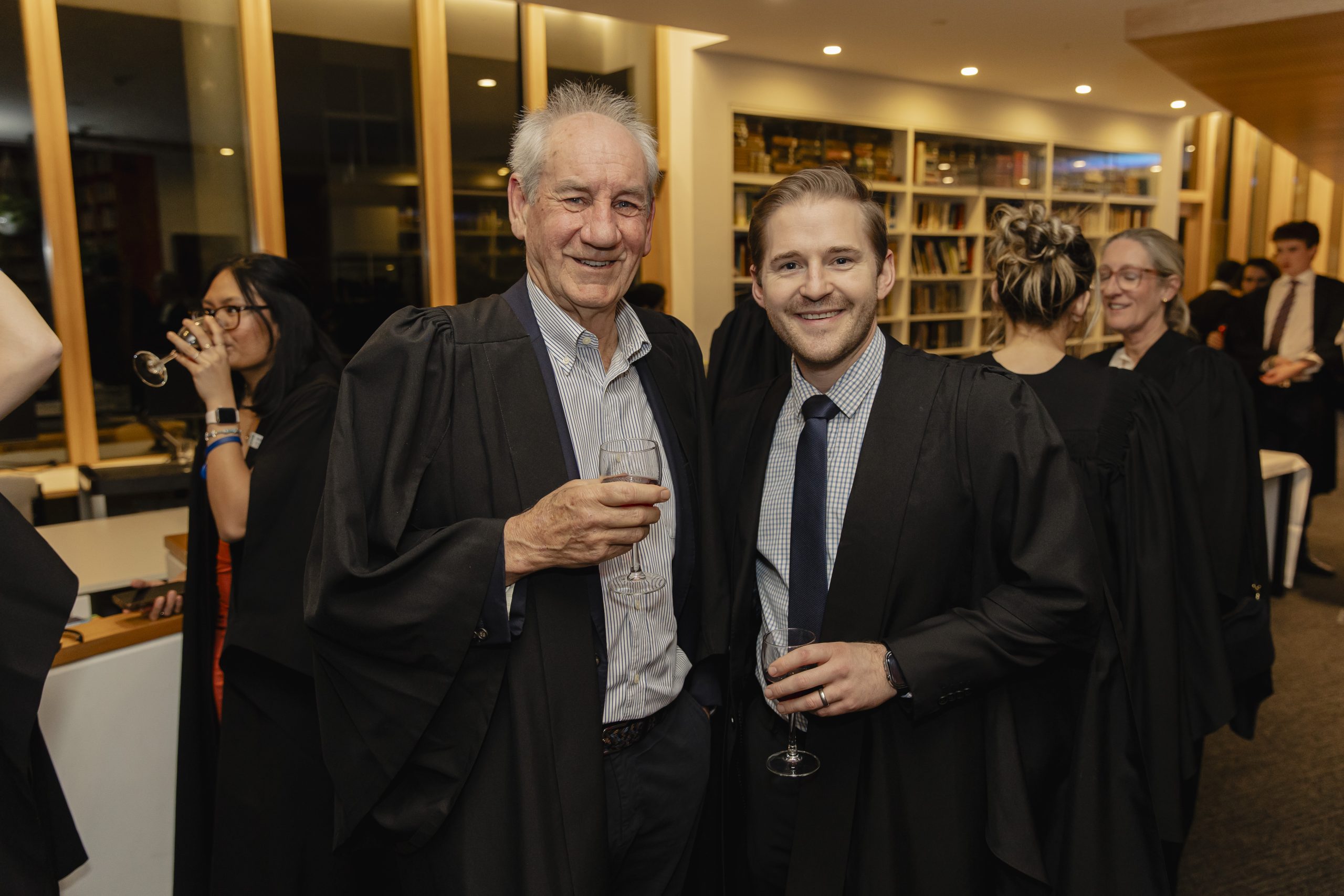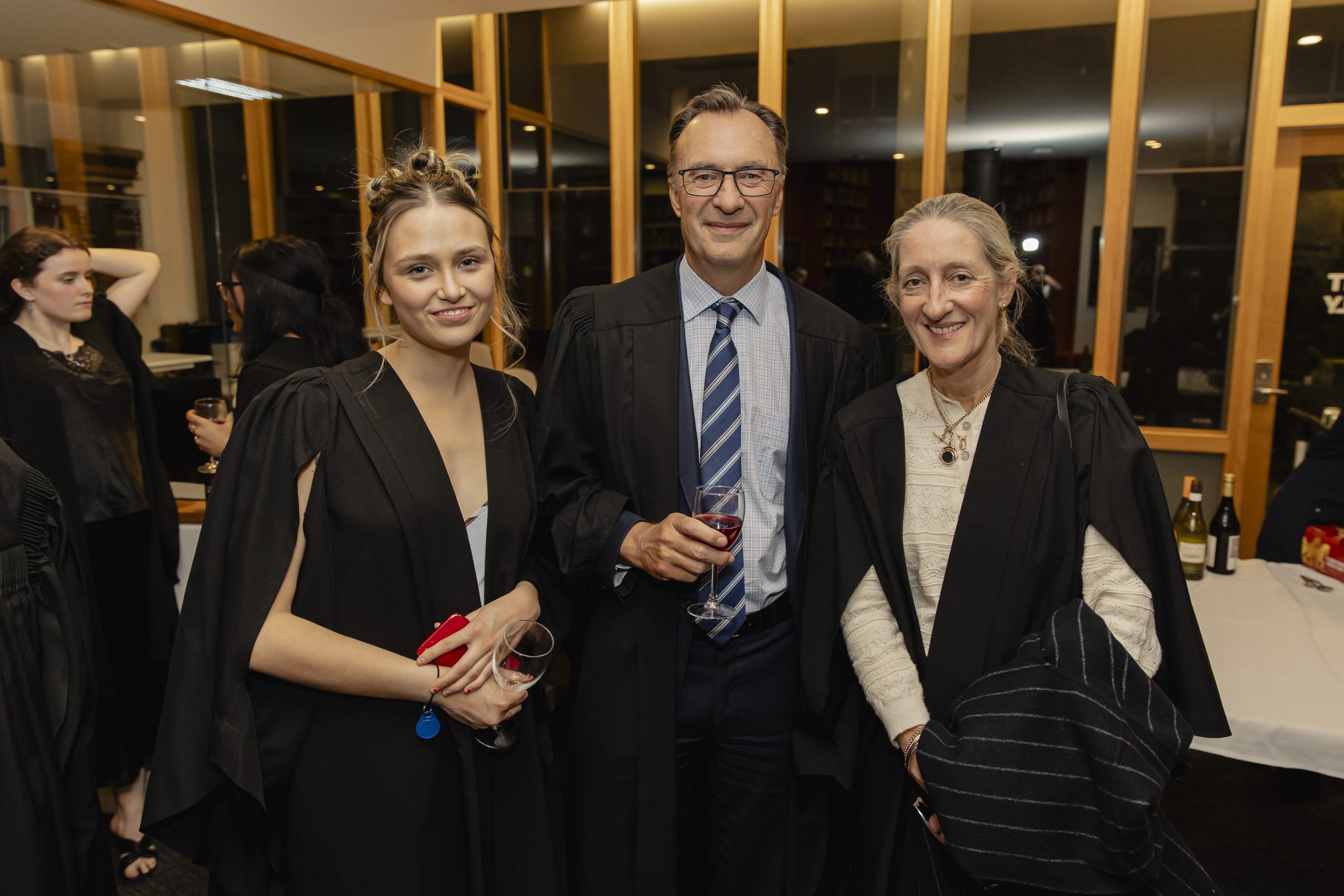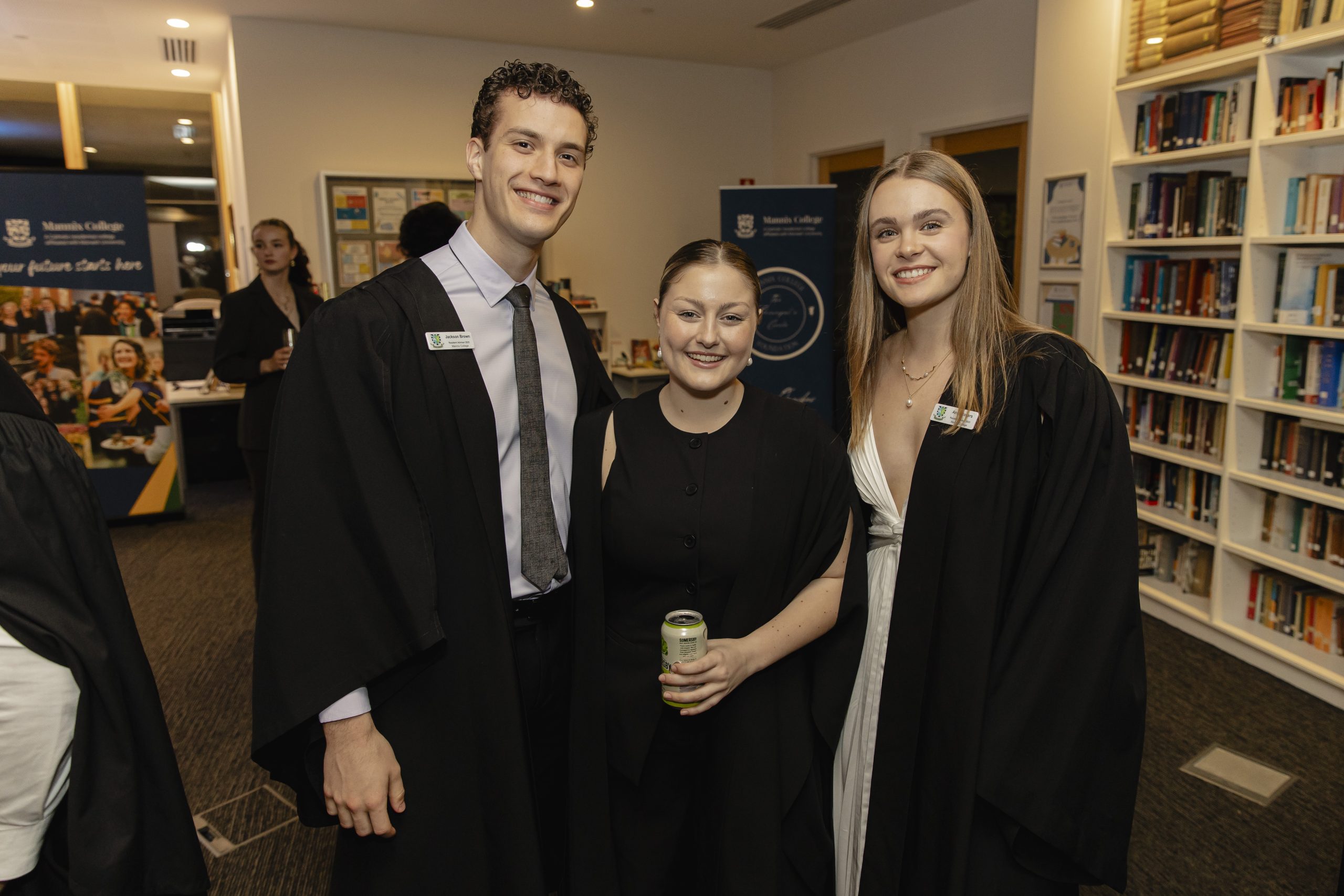World of Worries: Newman Lecture explores geopolitics and sustainable development
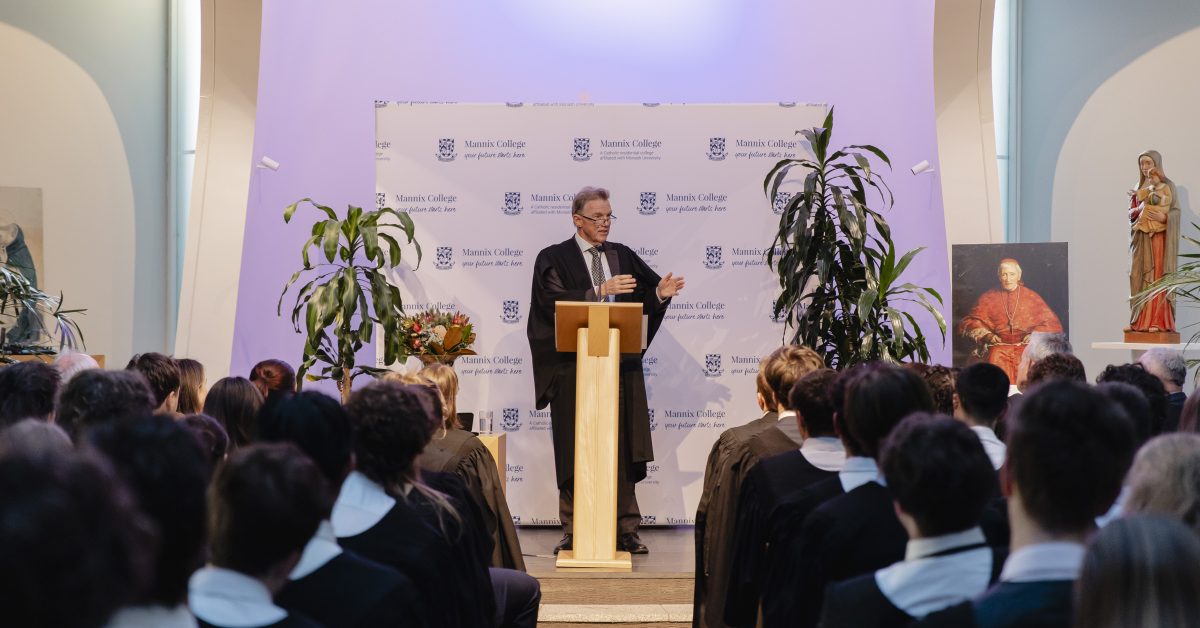
The 2025 Newman Lecture, delivered on 27 August by Professor John Thwaites AM, was a timely and sobering reminder that we live in a “world of worries” — but also a world where hope and collaboration can drive solutions.
Speaking to more than 300 residents, staff, alumni, donors, and guests in St Dominic’s Chapel, Professor Thwaites drew on his experience as a global leader in sustainable development, climate action, and governance reform to challenge the audience to be bold, informed, and hopeful in the face of daunting global realities.
A World of Worries
Professor Thwaites opened with the confronting images of today’s news cycle: starving children in Gaza, bombed-out apartments in Ukraine, devastating wildfires in Los Angeles, and floods across Australia. These, he said, can overwhelm us and tempt us to “look away.” Yet, he reminded the audience, “hope is a far stronger driver of solutions than fear or despair. A burning platform may capture attention, but fear often paralyses. Hope sets you on the path to doing something that will make a difference.”
Collaboration as Survival
From the Paris Climate Agreement to the UN Sustainable Development Goals (SDGs), Professor Thwaites highlighted diplomacy and collaboration as humanity’s greatest survival tools. The SDGs, he noted, are effectively “a To-Do List for a better world”.
Despite criticism that these agreements lack teeth, Thwaites insisted they have mobilised real change: renewable energy investment now far outstrips fossil fuels, and in Australia renewables jumped from 14% of electricity in 2015 to 43% in 2025.
Rising Tensions, Shifting Powers
Progress, however, is faltering. Conflicts are draining funds from health and education into weapons, while the balance of global power is shifting to a multipolar world dominated by Asia. With BRICS (Brazil, Russia, India, China, and South Africa) nations now overtaking the G7 in total output, Thwaites argued, “what we really need is global cooperation and multilateralism in which we pursue the common good.”
The Role of Universities and Students
Universities, he stressed, have been central to shaping global agreements — from Monash’s role in winning a dedicated SDG for sustainable cities to the Climateworks-led research underpinning Australia’s pathway to net zero. Perhaps most inspiring for Mannix students was the story of Monash student Sam Loni, whose idea for Sustainable Development Solutions Network (SDSN) Youth has since grown into a global movement of 40,000 young people across 100 countries.
Professor Thwaites challenged students to see themselves as changemakers: “Young people have the greatest stake in achieving sustainable development by mid-century and securing a world of peace and social justice.”
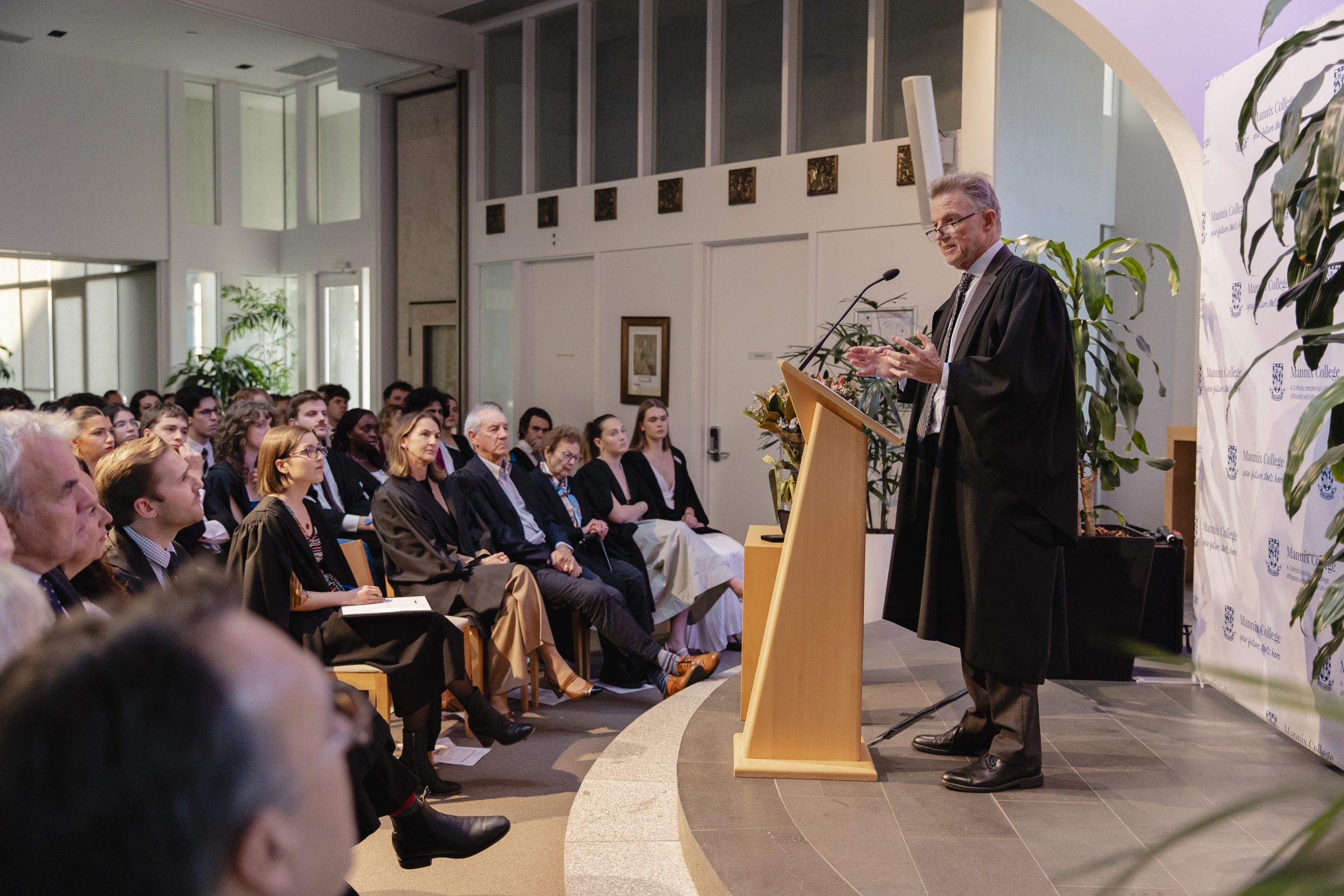
Reforming Global Governance
Looking to the future, Professor Thwaites identified two urgent priorities:
- Financing for development: addressing the debt crises that mean “three billion people live in countries that spend more on debt repayments than on education or health.”
- Reforming global governance: updating the UN to reflect today’s world, with proposals for a UN Parliamentary Assembly and a new UN Council of Youth and Future Generations.
Continuing the Conversations
The lecture was followed by a Formal Dinner and expert panel discussion on the interplay of technology and wellbeing, moderated by Mannix College Student Society (MCSS) President Polly Lewis. Joining Professor Thwaites was Dr Eleanor Gordon, Director of the Monash Global Peace and Security Centre. The evening buzzed with conversation, as students and alumni pressed the panellists on how to navigate global complexity with courage and creativity.
A Call to Hope
For Mannix, the 2025 Newman Lecture was more than a speech; it was an invitation to students to see themselves as part of a global story of cooperation, courage, and reform.
“A college like Mannix is uniquely positioned to grapple with global challenges in a spirit of optimism. As an educated community, we are compelled to act. Our values guide us to make good choices, to stand for justice, and to contribute to positive social change. In an era often defined by fear and pessimism, our intellectual environment encourages students to ask the hard questions, to think across disciplines, and to believe that their voices can help shape a better world.” – Andrew Swan, Principal

